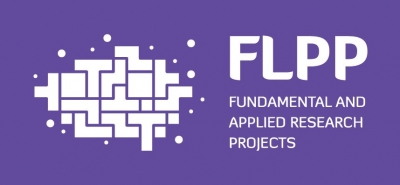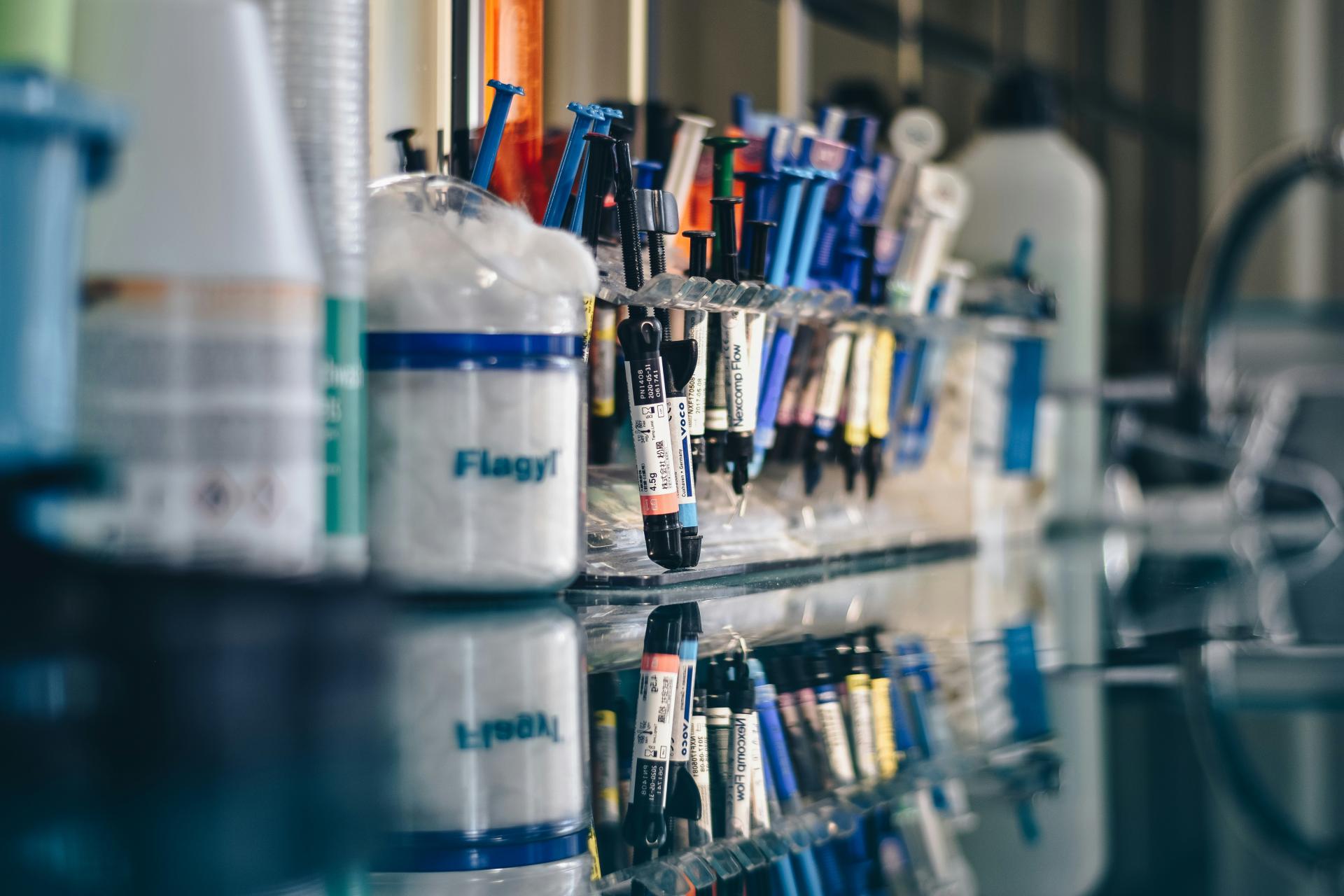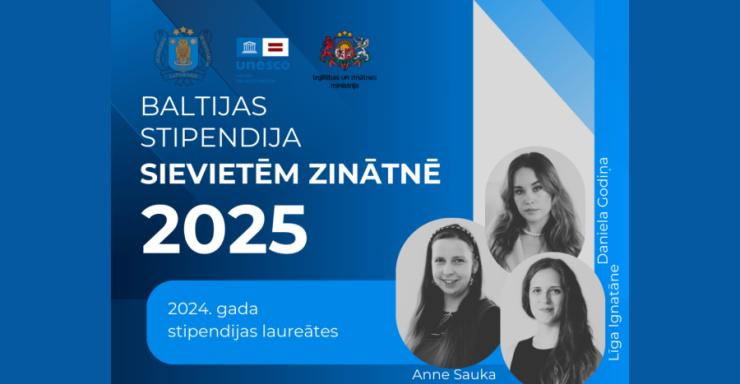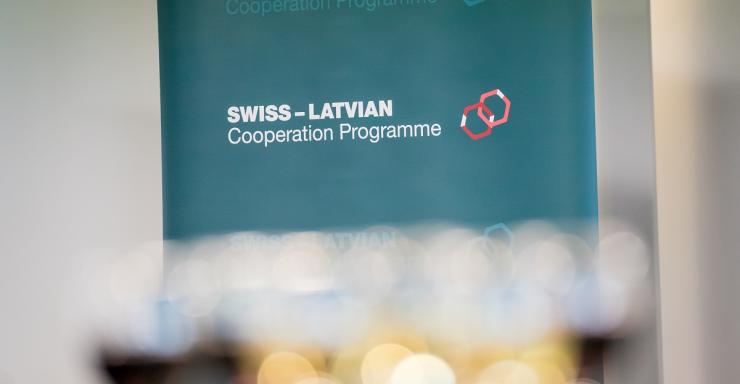The Latvian Science Council funded Fundamental and Applied Research program project “Public health and environmental pollution prevention through circular economy approaches in health care waste management (Panacea)” stands out for its practical applicability and potential to improve public health and environmental protection through modern, scientifically grounded solutions. Project manager, Professor Jūlija Gušča, from the Institute of Energy Systems and Environment, emphasizes that managing healthcare waste is a significant challenge, as improper waste management can pose serious risks to both the environment and public health. Today, it is essential to address waste management challenges through the lens of the circular economy.
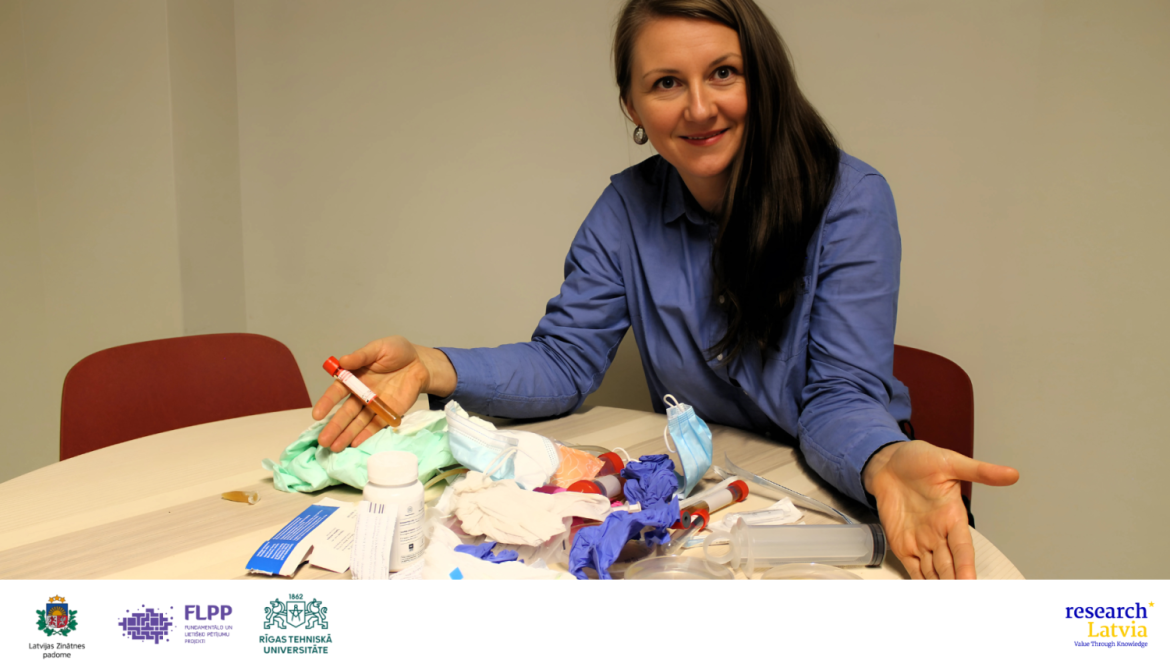
Latvian Science Council funded Fundamental and Applied Research program project “Public health and environmental pollution prevention through circular economy approaches in health care waste management (Panacea)” stands out for its practical applicability and potential to improve public health and environmental protection through modern, scientifically grounded solutions. Project manager, Professor Jūlija Gušča, from the Institute of Energy Systems and Environment, emphasizes that managing healthcare waste is a significant challenge, as improper waste management can pose serious risks to both the environment and public health. Today, it is essential to address waste management challenges through the lens of the circular economy.
The Problem We Fear
The main goal of this project was to view healthcare waste as a resource rather than something hazardous or repellent. Currently, healthcare waste is disinfected and then sent to landfills. Approximately 3,000 tons of waste are sent to landfills annually in Latvia. The project aimed to explore alternative applications of healthcare waste to reduce its negative environmental impact while delivering economic and social benefits. As society increasingly views waste sorting and recycling seriously, it is also important to highlight the issue of healthcare waste, which often goes unnoticed.
The Biggest Challenge – the COVID-19 Pandemic
Professor Jūlija Gušča recounts that the project application was submitted just three days before the first COVID-19 lockdown in Latvia. "We couldn't predict how this would impact the entire project. Our hypothesis was that healthcare waste volumes would increase significantly during the pandemic due to the higher use of masks, gloves, and other protective equipment. However, the hypothesis proved incorrect, as the lockdown brought the medical system to a standstill, resulting in a noticeable drop in healthcare waste volumes. This unexpected outcome presented new challenges for our project," Jūlija explains.
COVID-19 as a Wake-Up Call
Jūlija Gušča explains that healthcare waste management has long been an area of uncertainty and lack of accountability, with unclear roles and responsibilities. The
COVID-19 pandemic highlighted these issues. "The pandemic demonstrated the dangers of healthcare waste and the necessity for solutions. For example, during the first lockdown, people wrapped masks in multiple plastic bags, underscoring public alarm and awareness," she recalls.
What Can Be Done?
The study involved collaboration with two recycling companies in Latvia specializing in healthcare waste processing, as well as several hospitals. The research focused on three main areas: identifying products that can be made from healthcare waste, reducing its environmental impact, and evaluating the process's benefits. "We used a lifecycle assessment method, tracking waste from its generation in hospitals to its recycling or disposal in landfills. Various scenarios were developed, such as producing soundproofing materials, hydroponics, or fuel from healthcare waste, and their environmental impacts were evaluated," Jūlija explains.
Is Waste Recovery to Products Always the Best Option?
The analysis of recycled products showed that transforming healthcare waste into valuable products is always more environmentally friendly than landfilling. However, any production process requires resources and has it own environmental impacts. The results revealed that the most economically advantageous solution is not always the most environmentally friendly one.
A Roadmap for the Future
One of the study's practical outcomes was the creation of a roadmap summarizing key findings and possible scenarios for effectively utilizing healthcare waste in the future. This roadmap, consisting of 20 pages, is designed to be accessible and understandable to decision-makers and potential investors. It outlines six different scenarios, including existing practice – landfill disposal – and opportunities to use healthcare waste for production of hydroponic components, acoustic panels and building materials. The roadmap serves as a tool for evaluating scenarios from environmental, economic, and social perspectives.
Panacea: Healthcare waste sector roadmap to circular economy perspective(ENG)
openHealthcare Waste is a Valuable Resource!
A series of activities were conducted to inform the public about the importance of recycling healthcare waste. One notable initiative was an open course on environmental engineering for industry professionals. Jūlija recalls: "After the lectures, participants would approach me and say, 'Now, every time I enter a hospital, I see not just waste but a resource!'" Roundtable discussions were also organized with decision-makers and company representatives to foster industry dialogue. Special attention was paid to education, with over 16 schools hosting lectures on healthcare waste. Students from grades 1 to 9 learned about the research and its outcomes, with workshops tailored to each age group to foster understanding and interest in environmental issues. "All the activities we conducted to raise awareness of sustainable healthcare waste management helped change perceptions. People began to see healthcare waste not as a problem but as a valuable resource. This shift in mindset was one of the project's most significant achievements."
Conclusion
The study's results offer hope that the healthcare waste recycling sector in Latvia can become a major contributor to environmental and economic well-being. "Healthcare waste is a valuable resource!" says project manager Jūlija Gušča with conviction. "Our goal was to show that this waste can become a resource if approached responsibly and innovatively!"
The project "Public health and environmental pollution prevention through circular economy approaches in health care waste management (Panacea)" (lzp-2020/1-0299) is implemented under the Fundamental and Applied Research program, funded by the Latvian Science Council.
